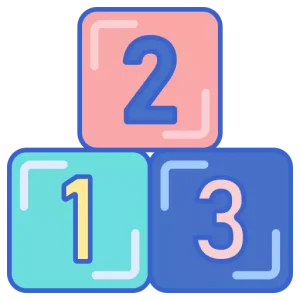TCS CodeVita
- PrepInsta Home
- TCS CodeVita
- TCS CodeVita Previous Year Questions and Answers
- TCS CodeVita Syllabus
- TCS CodeVita Coding Questions
- TCS CodeVita Registration
- How To Prepare
- Eligibility Criteria
- Interview Experiences
- TCS CodeVita Exam Date
- Get Off-campus Hiring Updates
- Get Hiring Updates
- Contact us
- Prime Video
PREPINSTA PRIME
Count Pairs Problem (TCS Codevita)
Count Pairs Problem
Count Pairs Problem is a simple array manipulation coding problem which was asked in TCS Codevita coding competition. TCS organizes this global level coding competition in order to promote Porgramming-As-a-Sport in the search of world’s best Coder.This is an article on TCS Codevita Count Pairs Problem where we have to find the number of happy elements in an array.

Problem Description
Given an array of integers A, and an integer K find number of happy elements.
Element X is happy if there exists at least 1 element whose difference is less than K i.e. an element X is happy if there is another element in the range [X-K, X+K] other than X itself.
Constraints
- 1 <= N <= 10^5
- 0 <= K <= 10^5
- 0 <= A[i] <= 10^9
Input
- First line contains two integers N and K where N is size of the array and K is a number as described above.
- Second line contains N integers separated by space.
Output
- Print a single integer denoting the total number of happy elements.
Example 1
Input
6 3
5 5 7 9 15 2
Output
5
Explanation
Other than number 15, everyone has at least 1 element in the range [X-3, X+3]. Hence they are all happy elements. Since these five are in number, the output is 5.
Example 2
Input
3 2
1 3 5
Output
3
Explanation
All numbers have at least 1 element in the range [X-2, X+2]. Hence they are all happy elements. Since these three are in number, the output is 3.
Possible Solution
Input:
3 2
1 3 5
import java.util.*;
class Main
{
public static int solve (int arr[], int n, int k)
{
int count = 0;
for (int i = 0; i < n; i++)
{
int a = arr[i];
int id1 = i;
int id2 = i;
if (i == 0)
{
while (arr[id2 + 1] == a)
id2 += 1;
if (arr[id2 + 1] <= a + k && arr[id2 + 1] >= a - k)
count += 1;
}
else if (i < n - 1)
{
while (arr[id2 + 1] == a)
id2 += 1;
while (arr[id1 - 1] == a)
id1 -= 1;
if (((arr[id1 - 1] <= a + k) && (arr[id1 - 1] >= a - k))|| ((arr[id2 + 1] <= a + k) && (arr[id2 + 1] >= a - k)))
count += 1;
}
else
{
while (arr[id1 - 1] == a)
id1 = id1 - 1;
if (arr[id1 - 1] <= a + k && arr[id1 - 1] >= a - k)
count += 1;
}
}
return count;
}
public static void main (String[]args)
{
Scanner sc = new Scanner (System.in);
int n = sc.nextInt ();
int k = sc.nextInt ();
int arr[] = new int[n];
for (int i = 0; i < n; i++)
arr[i] = sc.nextInt ();
Arrays.sort (arr);
System.out.println (solve (arr, n, k));
}
}
- Positive or Negative number: C | C++ | Java
- Even or Odd number: C | C++ | Java
- Sum of First N Natural numbers: C | C++ | Java
- Sum of N natural numbers: C | C++ | Java
- Sum of numbers in a given range: C | C++ | Java
- Greatest of two numbers: C | C++ | Java
- Greatest of the Three numbers: C | C++ | Java
- Leap year or not: C | C++ | Java
- Prime number: C | C++ | Java
- Prime number within a given range: C | C++ | Java
- Factorial of a number: C | C++ | Java
- Sum of digits of a number: C | C++ | Java
- Reverse of a number : C | C++ | Java
- Palindrome number: C | C++ | Java
- Armstrong number : C | C++ | Java
- Armstrong number in a given range : C | C++ | Java
- Fibonacci Series upto nth term : C | C++ | Java
- Factorial of a number : C | C++ | Java
- Power of a number : C | C++ | Java
- Factor of a number : C | C++ | Java
- Strong number : C | C++ | Java
- Perfect number : C | C++ | Java
- Automorphic number : C | C++ | Java
- Harshad number : C | C++ | Java
- Abundant number : C| C++ | Java
- Friendly pair : C | C++ | Java


 Apply For Jobs
Apply For Jobs Get Hiring Updates
Get Hiring Updates
